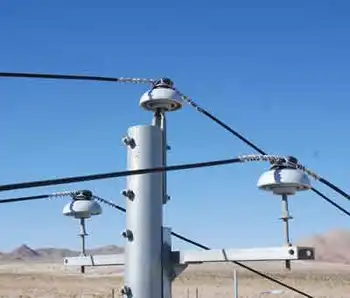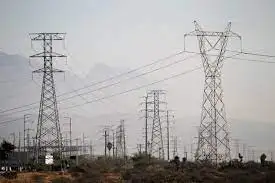Rate phase-in on table: Lawmakers want less painful boost in electricity cost
BALTIMORE, MARYLAND - Leaders in the General Assembly are negotiating a plan with Constellation Energy Group to phase in a 72 percent electricity cost increase without charging customers interest - one of several proposals lawmakers say could appease voters facing an unexpected financial hit in an election year.
House Speaker Michael E. Busch said he and Senate President Thomas V. Mike Miller met recently with representatives from Constellation Energy, the parent company of Baltimore Gas and Electric Co., in expectation of a public outcry over the deregulation of electricity and the impending removal of price caps.
"I'm confident that there will be legislation that will deal with the rate cap," Busch said. "I think that something has to be done to prevent that type of meteoric rise in electricity rates."
With little more than a month to go in the legislative session, the issue of energy rates has suddenly emerged as a potent campaign issue, as customers learned that their bills could soar an average of $743 a year based on the recently announced results of an auction for energy suppliers.
Gov. Robert L. Ehrlich Jr. has said his administration has tried to anticipate potential problems as the state adapts to deregulation.
But his Democratic rivals for governor pounced after the Public Service Commission recommended charging 5 percent interest to customers who want to spread the increase over time - a plan that would add additional costs to those who could least afford to pay them.
Baltimore Mayor Martin O'Malley and Montgomery County Executive Douglas M. Duncan criticized the governor for failing to help lawmakers devise a plan that would benefit consumers.
"Where Governor Ehrlich has failed, we must act to establish a 'shock-absorber' to protect Maryland's hardworking families, who are already being hit hard by the soaring costs of home heating bills, increased property taxes, fees and tolls," said O'Malley in a statement.
Montgomery County Executive Douglas M. Duncan said the governor should have planned ahead, because the increase was not a surprise.
"He needs to bring people together to say, 'How do we solve this problem?'" he said.
Henry Fawell, an Ehrlich spokesman, said the governor is concerned about the rate increase and is reviewing "every option at his disposal."
Many lawmakers called the rate boosts unavoidable but pledged to devise a plan to lessen the blow to customers by the time the General Assembly adjourns in April.
A spokesman for Constellation Energy said the company's officials have been meeting frequently with lawmakers, hoping to negotiate a solution.
Talks on how to keep customers' costs down come as Constellation is planning a merger with Florida Power & Light, a business deal that could introduce more uncertainty in the marketplace. Some lawmakers have been warning of a "perfect storm," from the removal of rate caps and the merger, that could batter consumers.
Among the measures introduced in the Assembly is a bill to delay the implementation of rate increases until next year. Another, sponsored by Del. Patrick L. McDonough, would prevent the electric company from charging more than a 5 percent increase each year for the next five years.
"If it passes, it immediately stops everything. It protects customers, and I believe it will stop, if not kill, this sellout of a merger," said McDonough, a Baltimore County Republican.
"Everything must be done in the next 30 days," he said. "The legislature is the only group that has the authority to impact these dangerous things."
Other lawmakers said the issue is more complex.
Like it or not, the rate hikes are inevitable, said Del. Dereck E. Davis, a Prince George's County Democrat and chairman of the Economic Matters Committee, which will hear numerous bills on the issue Tuesday."We need to understand we cannot make these increases go away," said Davis. "As important as it is to put in a plan that is fair to consumers, we also need to be mindful that our utilities have to remain solvent. And that's in the best interest of everyone."
Rob Gould, a BGE spokesman, called McDonough's plan "bad public policy."
"This is something where we believe the problem is not deregulation failing, this is a problem of supply and demand on a global basis," Gould said. "We don't control the world energy market."
In 1999, the legislature approved a deregulation plan that proponents said would spur competition and lower customers' energy bills. To ease the transition and prevent wild fluctuations in prices, lawmakers adopted temporary caps, which froze electricity rates and resulted in a savings of more than $1 billion for BGE customers, according to estimates from the PSC.
Lawmakers are now coping with the fact that competition has not arrived before a looming July 1 deadline, when caps will be eliminated and costs will go up.
Maryland is not alone in facing the problem. Lawmakers in Delaware, Connecticut and New York are also working on a variety of proposals to grapple with deregulation.
Busch, the House speaker, said he hopes to see a solution that meets the needs of both consumers and the utility company.
"BGE and Constellation have absorbed the cost for six years," he said. "Somewhere along the line, there has to be a removal of the cap."
Other proposals include offering additional help to the most vulnerable customers. Davis, the committee chairman, is backing a bill that would allow more low-income people to qualify for a program that helps pay for electric costs. A similar measure exists in the Senate.
Meanwhile, some lawmakers hope to tackle the proposed merger, which they say creates an additional burden to customers.
One bill requires the General Assembly to approve any utility merger. Another would create a commission to study the proposed merger and extend the rate caps for another year.
Miller, the Senate president, said lawmakers were the last line of defense against a state public service commission that has become "tool of the utility company."
"The merger protects the shareholders," he said. "The General Assembly takes the position that the shareholders come second to the customers."
But some lawmakers acknowledged that election-year politics are likely to permeate whatever passes this legislative session.
"Constellation is very worried... (that) we are going to go too far out there, in some effort to appease or pander to voters, and pass a bill that may be politically expedient but fiscally irresponsible," Davis said.
Related News

U.S. power demand seen sliding 1% in 2023 on milder weather
WASHINGTON - U.S. power consumption is expected to slip about 1% in 2023 from the previous year as milder weather slows usage from the record high hit in 2022, the U.S. Energy Information Administration (EIA) said in its Short-Term Energy Outlook (STEO).
EIA projected that electricity demand is on track to slide to 4,000 billion kilowatt-hours (kWh) in 2023 from a historic high of 4,048 billion kilowatt-hours (kWh) in 2022, before rising to 4,062 billion kWh in 2024 as economic growth ramps up.
Less demand coupled with more electricity generation from cheap renewable power sources and lower natural gas prices is forecast…




